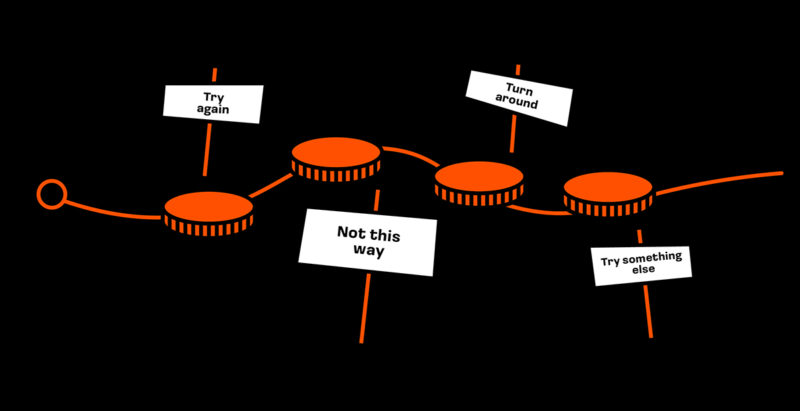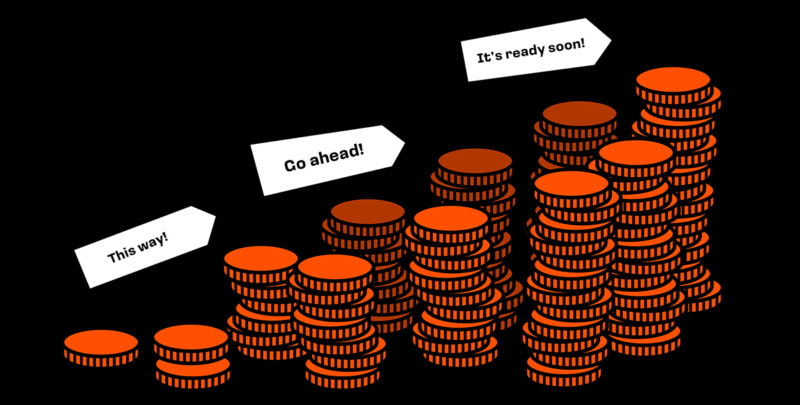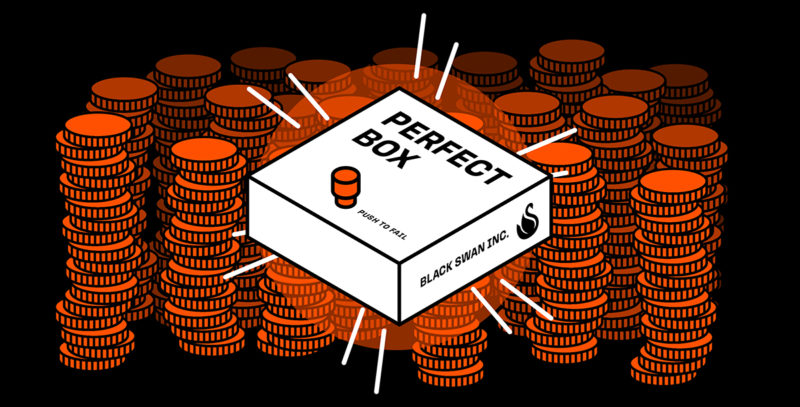Quick failure is every product developer’s dream and a business opportunity.
We all perceive failure as a threat – it’s engrained in us to think of failing as inherently undesirable. This is still a frequent mindset in our modern age where learning from failures, reviewing them constructively and supporting each another in moments of failure is commonplace. Why?
We learn wisdom from failure much more than from success. We often discover what will do, by finding out what will not do; and probably he who never made a mistake never made a discovery.
– Author Samuel Smiles (1812–1904)
Failure is not a threat nor a vice. Every failure provides valuable insight on which direction we shouldn’t progress. Every failed experiment gives us pointers towards the right path. The earlier we face failure in developing a product, the more likely we are to succeed in the end. Early failure saves time, resources, nerves, and investments.
Success consists of going from failure to failure without loss of enthusiasm.
— Winston Churchill (1874–1965)

Success is traditionally measured with cost-effectiveness and quality, or by using motivation and credibility as more modern metrics. The cost-effectiveness of product development is typically determined through euros per product or an ROI percentage. Every spent euro shows in the outcome. Every euro spent on failure shows in the outcome. Every euro spent on slow failure shows in the outcome. The later we fail, the more euros we spend to achieve the outcome. Failures are illustrated as cumulative expenses in the finished product.
Experience is a good school. But the fees are high.— Poet Heinrich Heine (1797–1856)

Failure is still almost impossible to completely avoid. A perfect success can be compared to the black swans of risk management: it is as probable as a Biblical flood or an attack of the Martians.
Perfect success requires an unsustainably large investment in development, while a slow failure attracts cumulative expenses. Quick failure requires investing in a proof of concept that helps fathom the path towards the finished product. This enables success and minimal hitches in the actual development phase.

Quick failures have no cumulative expenses, or their impact is next to minimal. Therefore early failures in product development are a profitable business practice.
So: are you a perfect success, a slow failure, or a fast failure?
Failing – a threat or a dream
Don’t listen to anybody.
Do not follow anything.
Whatever you do, do not document.
Do not be tempted by collaboration.
Don’t succeed in product development.
Develop a concept that nobody is interested in.
Develop a finished product that does not work.
Develop an operating model that guarantees no new business.
Do not succeed in anything.
Don’t ask for help or innovate.
Don’t do anything.
Fail.
Fail fast.
Fail cost-effectively.
Fail in concept and design, not in development.
Fail with reason.
You’ll fail fast.
